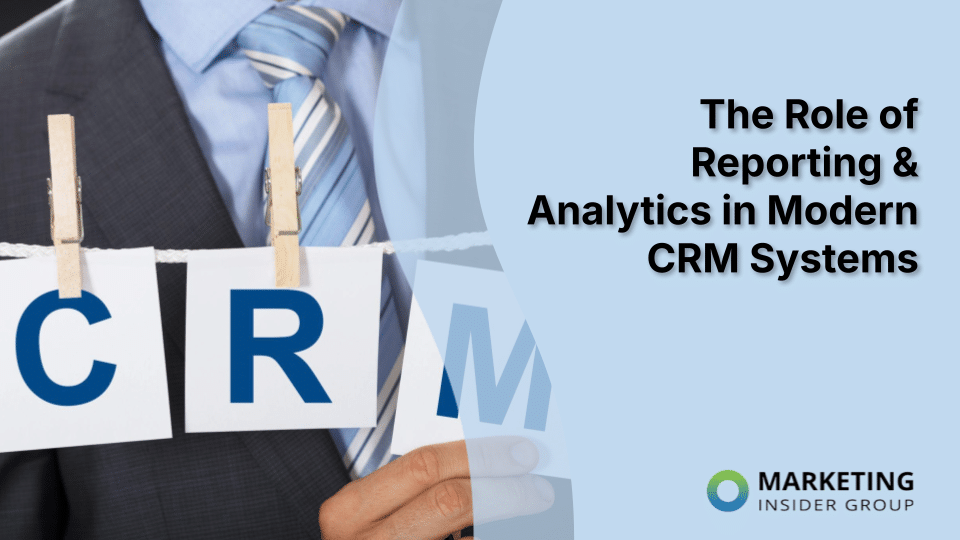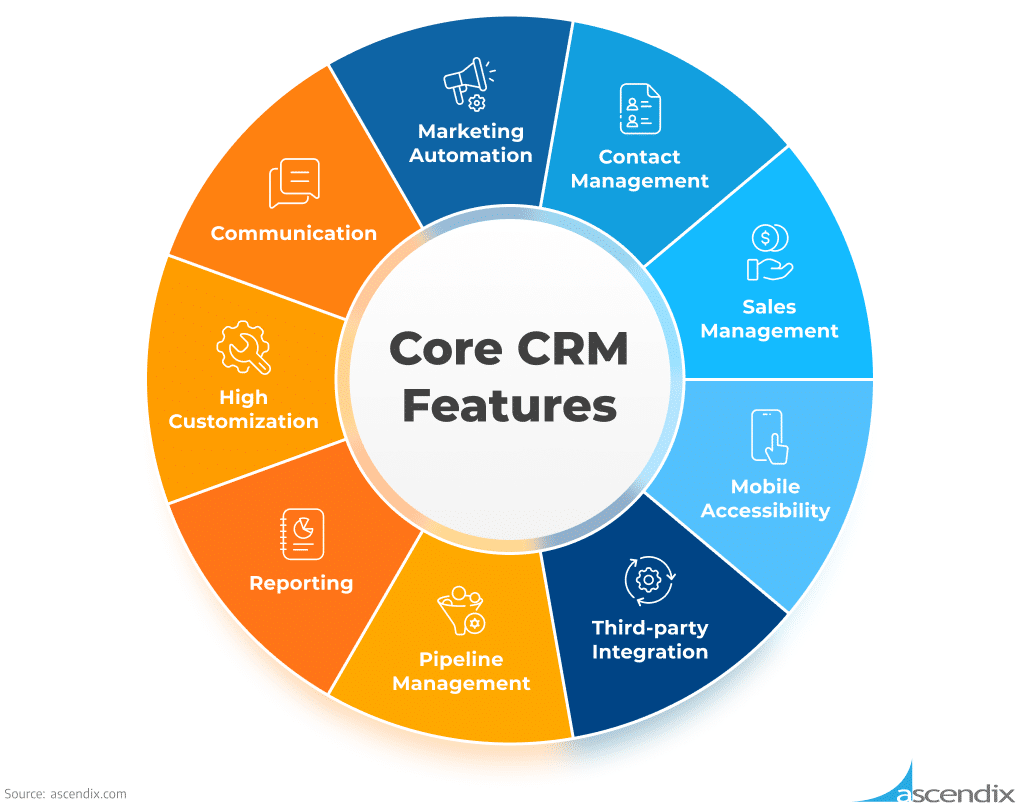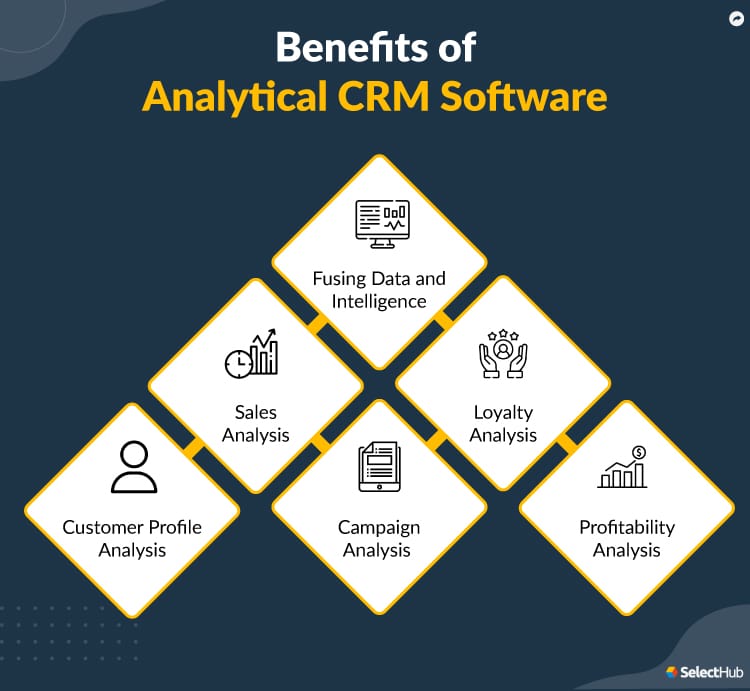
Customer relationship management (CRM) systems are everywhere, as the industry could be worth about $55 billion by the end of 2024. These systems help manage customer interactions and provide useful data that drives success, making them incredibly valuable for organizations of all sizes.
Most modern CRM systems have reporting and analytics features that help businesses extract meaningful insights from their data. Companies use this data to make informed decisions, improve customer understanding, and fuel growth, taking operations to the next level.

You can use CRM reporting to track sales performance and identify trends, ensuring your organization has the necessary information. This article will explore how reporting and analytics in CRM systems empower organizations to reach their full potential.
Quick Takeaways
- CRM reporting and analytics provide actionable insights that guide better business strategies.
- CRM tools enable precise customer grouping, leading to more targeted and effective marketing campaigns.
- Data analysis helps businesses refine their approaches, increasing conversions and boosting revenue.
- CRM insights allow companies to offer tailored recommendations, improving customer satisfaction and loyalty.
What is CRM Reporting?
CRM reporting describes the organization and presentation of customer-related data from a CRM system into clear, easy-to-understand reports. These reports help businesses gain insights into multiple parts of their operations, including sales performance, customer service, marketing campaigns, and customer interactions.
In short, CRM reporting allows companies to track metrics and evaluate the effectiveness of their efforts by compiling data in a single location.
For example, a sales performance report can show how well different sales teams are doing, helping managers spot trends or areas needing improvement.
Similarly, customer service reports can highlight response times or satisfaction levels, giving businesses a clear view of how well they meet customer needs.
Tracking these interactions and performance metrics helps you make informed decisions, optimize processes, and improve customer relationships. CRM reporting transforms raw data into actionable insights that help companies develop better business strategies and drive overall growth.
What is CRM Analytics?
CRM analytics takes the data collected in a CRM system to uncover deeper insights, predict trends, and make data-driven decisions. Unlike CRM reporting, which organizes and presents data, CRM analytics goes further by interpreting that data to identify patterns, forecast future outcomes, and recommend actions for business growth.
There are three CRM analytics types worth learning about:
- Descriptive analytics looks at past data to understand what happened.
- Predictive analytics takes historical data and uses it to predict the future, such as which customers are most likely to make a purchase.
- Prescriptive analytics suggests the best course based on data insights, helping businesses improve their strategies.
For example, CRM analytics can help a company target the right customers by identifying buying behaviors or optimizing marketing campaigns by showing which messages resonate best with their audience. These insights mean businesses can develop more personalized customer engagement and retention strategies.
CRM Data Insights: Unlocking Business Value
CRM data insights are the conclusions businesses can draw from analyzing the data their CRM systems capture. These insights go beyond just numbers, providing actionable information to guide strategic decisions. By combining CRM reporting and analytics, companies can unlock powerful data insights that drive better performance and customer engagement.
The Power of Reporting and Analytics Together
When CRM reporting organizes raw data into clear reports and CRM analytics interprets that data, businesses gain a complete view of customer interactions. This combination helps identify trends, predict customer behaviors, and highlight opportunities for improvement.
From there, companies can make informed decisions based on actual data rather than assumptions.
Driving Customer Engagement and Personalization
Data insights allow businesses to understand their customers on a deeper level, enabling personalized marketing, tailored product recommendations, and improved customer service.
For example, CRM data insights can reveal patterns in customer behavior, helping businesses implement targeted retention strategies. A company could use these insights to offer personalized discounts to high-value customers, boosting loyalty and retention.
In essence, CRM data insights unlock the true potential of customer relationships, helping businesses optimize their operations and deliver more meaningful experiences.
Benefits of CRM Reporting and Analytics for Businesses
CRM reporting and analytics provide multiple benefits that help businesses streamline their operations and better serve their customers.

Improved Decision-Making
With CRM reporting and analytics, businesses can rely on data to guide their decisions rather than guesswork. Access to clear, actionable insights helps leaders make informed choices about sales strategies, customer engagement, and resource allocation, ultimately driving better outcomes.
Enhanced Customer Segmentation
CRM analytics enables companies to group customers based on specific behaviors, demographics, or purchasing patterns. This segmentation creates more targeted marketing efforts, ensuring the message reaches customers at the ideal time to make a sale.
Increased Sales and Marketing Effectiveness
Businesses can identify which sales tactics and marketing strategies are most successful when they analyze their data. This analysis optimizes campaigns, increases conversions, and streamlines efforts to focus on the most promising sales opportunities.
Better Forecasting and Trend Identification
CRM analytics helps businesses predict future trends by analyzing historical data. Improving forecasting accuracy allows better resource planning and sales projections.
Higher Customer Satisfaction Through Personalization
Businesses can tailor their interactions to individual customers by using CRM data insights and offering personalized recommendations and solutions. This personalization leads to higher customer satisfaction, fostering long-term loyalty and retention.
Best Practices for Using CRM Reporting and Analytics
Following a few best practices can help you get the most from this technology. These steps ensure your data is accurate, meaningful, and aligned with your business goals.
Regularly Update and Clean Customer Data
Keeping customer data up to date is essential for accurate reporting and analytics. Regularly cleaning your CRM data ensures your reports and insights use the most current information.
Customize Reports to Match Business Goals
Every business is different, so you’ll want to customize your CRM reports to focus on the metrics that matter most to you. Tailor your reports to reflect your specific goals, including sales performance, customer retention, or marketing effectiveness.
Use Visual Tools to Simplify Complex Data
Graphs, charts, and dashboards make complex data easier to understand. Use these visual tools in your CRM system to quickly spot trends, track performance, and share insights with your team.
Focus on Key Performance Indicators (KPIs)
Identify the most relevant KPIs to your business, such as customer acquisition costs or sales growth. Focusing on these metrics helps you stay aligned with your goals and make data-driven decisions.
Improve Your Marketing Outcomes
CRM reporting, analytics, and data insights help organizations turn raw data into actionable insights. The result is better decision-making, customer segmentation, and overall performance.
Marketing Insider Group can help take your business to the next level with our CRM and Marketing Management Services. Reach out for more information or schedule a free call with our team.

0 Commentaires